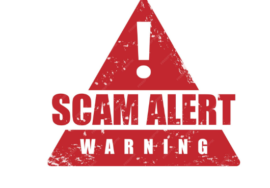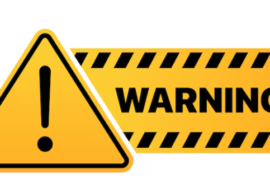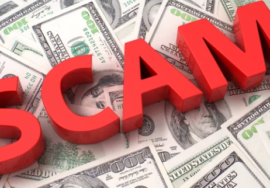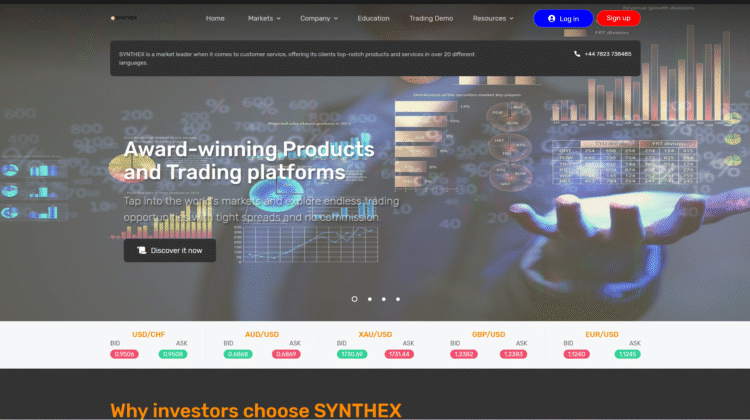
9 Explosive Warnings Every Investor Must See Before Trusting SynthexCapitals.com (SYNTHEX)
9 Explosive Warnings Every Investor Must See Before Trusting SynthexCapitals.com (SYNTHEX)
Sleek landing pages and “AI-powered” dashboards are easy to fake; regulation, custody, and clean withdrawals are not. SYNTHEX / SynthexCapitals.com presents itself as a fast-growing provider for forex, crypto, and CFD “investments.” Look closer and the red flags stack up: an active UK regulator warning, vague claims of “global” regulation with no license numbers, a very young, privacy-masked domain, and the all-too-familiar pattern of template websites used by unlicensed broker rings. This Element-1 style brief lays out the nine biggest
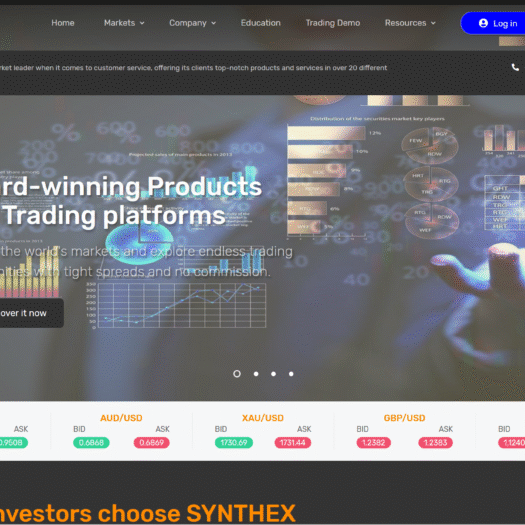
1) Explosive Regulatory Red Flag: FCA Warning (Sep 26, 2025)
The UK Financial Conduct Authority has publicly listed “SYNTHEX / synthexcapitals.com” as not authorised to provide or promote financial services in the UK—and notes the firm may be targeting UK consumers. Dealing with unauthorised firms means no FSCS compensation, no Financial Ombudsman recourse, and no regulated protections. This alone is a stop sign.
2) Powerful Clone-Template Pattern Flagged by Watchdogs
Industry monitors have documented a fresh wave of unlicensed brokers reusing the same website template under different logos and URLs. In a roundup covering Sep 22–26, 2025, the list includes “SYNTHEX / synthexcapitals.com.” When a brand appears in a clone-site wave alongside other FCA-warned names, you’re likely looking at a disposable web property, not a durable financial institution.
3) Vague “Regulation” Page Without Any Verifiable License
SynthexCapitals’ own “Regulations” page asserts the company is “incorporated with major financial entities worldwide” yet provides no regulator names, license numbers, or jurisdictions you can verify in official registers. Real brokers state regulator → license number → legal entity in one sentence. If you can’t independently confirm it, treat it as marketing, not authorisation.
4) High-Risk Products, Big Claims, Thin Specifics
The site markets forex, crypto, CFDs and even “digitals”—complex, high-risk derivatives—across product pages and help text. None of that is intrinsically illegitimate, but offering or promoting such instruments without recognised licences is a hallmark of unregulated platforms that leave customers with no enforceable protections when disputes arise
5) Shockingly Young, Privacy-Masked Domain
Reputation scanners show synthexcapitals.com was registered only a few months ago via Namecheap, with Withheld for Privacy ehf masking the registrant. Short domain history + privacy shielding are classic risk indicators—especially when combined with a fresh regulator warning. (Legitimate brokers often have long-tenured domains and transparent corporate footprints.)
6) Minimal Corporate Traceability
The FCA summary lists a support email and phone number for SYNTHEX, but there’s no credible, verifiable corporate entity or physical office disclosed on the public site that investors can match against an official register. When ownership is opaque, accountability is weak—exactly when you most need it.
7) One-Way Friction Risk: Easy Deposits, Hard Withdrawals
With unauthorised firms, customers commonly face withdrawal hurdles—invented “tax clearance,” “liquidity,” or “verification” fees—precisely when trying to take money out. The FCA explicitly warns that dealing with unauthorised firms removes your access to UK redress mechanisms, making any exit dispute much harder to resolve. Treat that as a structural risk baked into the choice of counterparty.
8) Name/Domain Confusion: Don’t Mix in Other “Syn*” Sites
A different site—synthexcapital.com (singular “capital”)—also exists online, with unrelated marketing copy. Scammers routinely exploit near-match domains to confuse investors. Always verify you’re looking at the exact domain cited by regulators (here, synthexcapitals.com) and never rely on look-alike names as evidence of legitimacy.
9) The Only Checklist That Matters (Use Before You Risk a Cent)
- Match the exact domain against a regulator’s public register; if absent—or on a Warning List—stop.
- Get the legal entity (company name + number + registered address) and verify it in government corporate databases.
- Confirm a license number in the regulator’s own database (screenshots don’t count).
- Demand custody clarity: named banks/custodians and segregated accounts.
- Ask for independent audits you can verify with the auditor.
- Start micro and test an immediate withdrawal before any serious funding.
- Avoid crypto-only rails used to dodge chargebacks and oversight.
- Archive everything: TXIDs, emails, chat logs, dashboard screenshots, terms.
- Heed clone-template alerts—disposable sites are a feature, not a bug.
Conclusion
The core issue with SYNTHEX / SynthexCapitals.com isn’t a single bad datapoint—it’s the convergence of them. Start with the most important fact: an active FCA warning (Sep 26, 2025) stating the firm is not authorised and may be targeting UK consumers. That alone strips away the usual protections—no Financial Ombudsman, no FSCS safety net—leaving clients to negotiate with an opaque website if anything goes wrong. In regulated finance, authorisation precedes advertising; when a firm shows up on the Warning List, “due diligence” largely becomes damage control.
Layered on top is the clone-template pattern documented by watchdogs—an ecosystem in which near-identical websites are spun up, harvested for deposits, then abandoned or re-skinned when scrutiny arrives. Seeing SYNTHEX / synthexcapitals.com inside that specific wave of FCA-warned domains should recalibrate your risk meter immediately: this is infrastructure built for interchangeability, not accountability
The site’s own content deepens the concern. A “Regulations” page gestures at being “incorporated with major financial entities worldwide,” yet lists no regulator names, license numbers, or jurisdictions you can verify in an official database. Product pages push CFDs/crypto/digitals—complex instruments that, when offered by unauthorised firms, are the very tools that separate investors from protections they’d otherwise have. If a firm can’t state regulator → license number → legal entity in one sentence—and have those resolve in public registers—there is no practical safety net beneath the marketing.
Technical signals round out the picture. The domain is very young and privacy-masked—fine on its own, but problematic when paired with regulatory red flags and clone-template fingerprints. Meanwhile, the FCA’s listing provides only basic contact artifacts (email/phone), with no verifiable corporate identity investors can pursue through official registries. That asymmetry (you’re known to them; they’re untraceable to you) is the opposite of how trustworthy financial firms operate.
What should a prudent investor do? If you have not funded an account, don’t start. Real opportunity survives slow, skeptical buyers; unauthorised operations rely on speed. If you have already engaged, halt deposits immediately and collect evidence—onboarding emails, chats, screenshots of dashboards and terms, and full transaction records (including TXIDs if crypto was used). Attempt a small, documented withdrawal for evidentiary value (don’t chase it with “clearance” payments). Notify your bank/payment provider to explore recalls or chargebacks, and file reports with your national regulator and cybercrime unit (the FCA page explains how to report unauthorised firms). Finally, be wary of “recovery” cold-contacts promising instant refunds for upfront fees—the second scam that so often follows the first.
Bottom line: presentation is not protection. A firm that cannot pass the first test—authorisation you can verify—has not earned your deposit. Until SYNTHEX can name a regulator and license number that resolve in an official database, disclose real custody, and process clean withdrawals, the disciplined move is the simplest: walk away.



